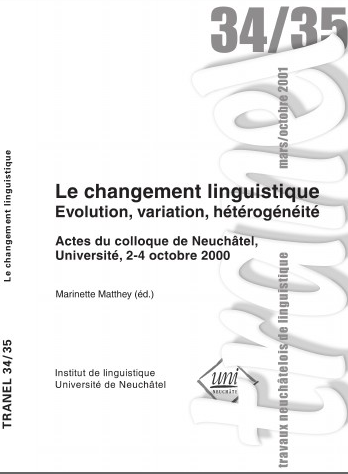Le changement linguistique et le contact linguistique à Bruxelles et à Strasbourg
DOI :
https://doi.org/10.26034/tranel.2001.2564Résumé
The main purpose of this article is to show that structural factors are responsible for a number of subtle differences in the outcome of language contact in Brussels and Strasbourg, and that sociolinguistic factors have little explanatory power in this matter. Differences between the rules for past participle formation in Dutch as spoken in Brussels and Alsatian as spoken in Strasbourg are claimed to be responsible for the differences in the integration patterns of French past participles as well as for differences between the occurrence of French past participles that maintain French morphology, the so-called unintegrated past participles. The latter occur only in French-Alsatian contact but not in French-Dutch contact. Thus, the present article offers some counterevidence to Thomason and Kaufman’s (1988, p. 35) claim that «it is the sociolinguistic history of the speakers, and not the structure of their language, that is the primary determinant of the linguistic outcome of language contact.» Evidence from other bilingual communities along the Romance-Germanic frontier provides additional support in favour of the hypothesis that structural rather than sociolinguistic factors are responsible for the contact patterns observed along the frontier.Téléchargements
Publié-e
01-10-2001
Comment citer
Treffers-Daller, J. (2001). Le changement linguistique et le contact linguistique à Bruxelles et à Strasbourg. Travaux neuchâtelois De Linguistique, (34-35), 339–354. https://doi.org/10.26034/tranel.2001.2564
Numéro
Rubrique
Article thématique


